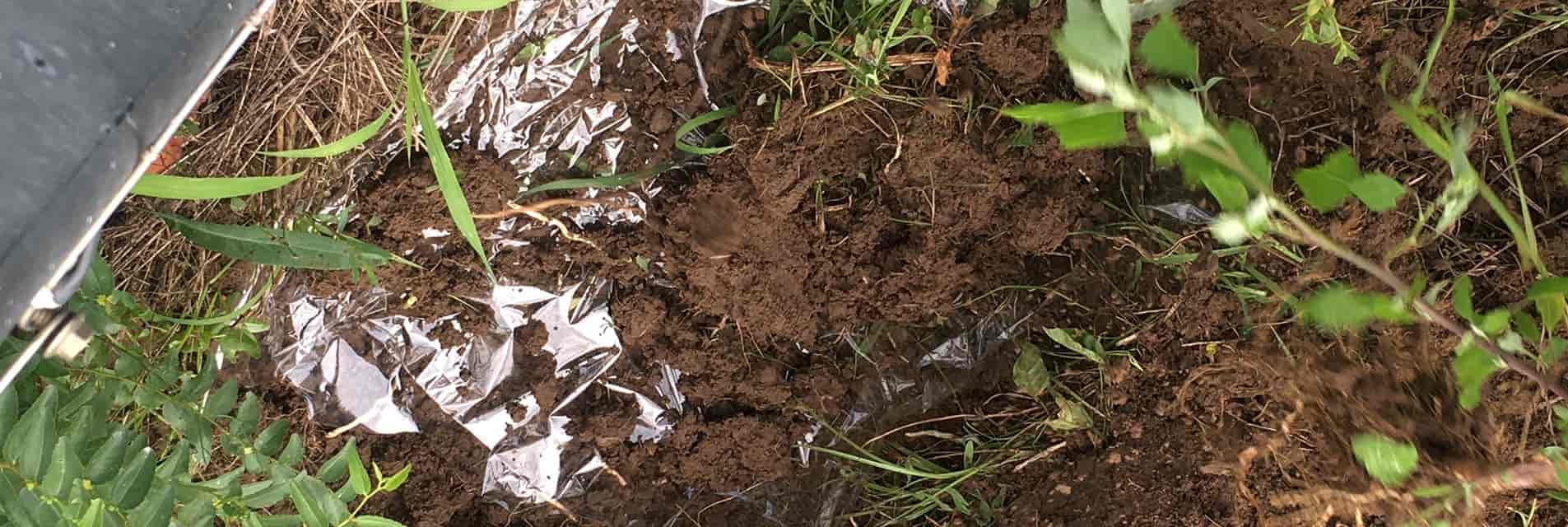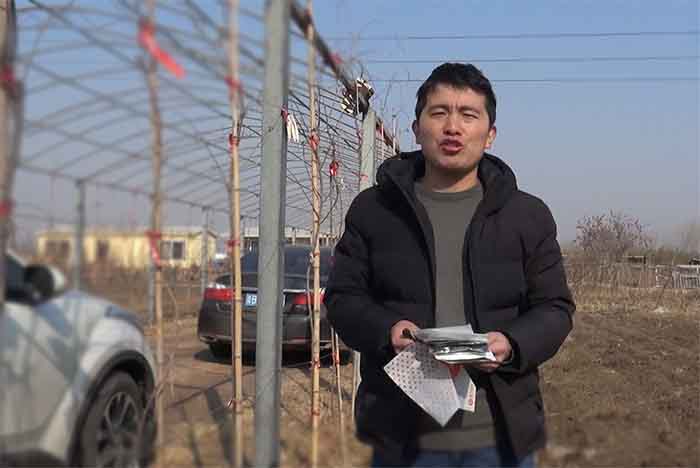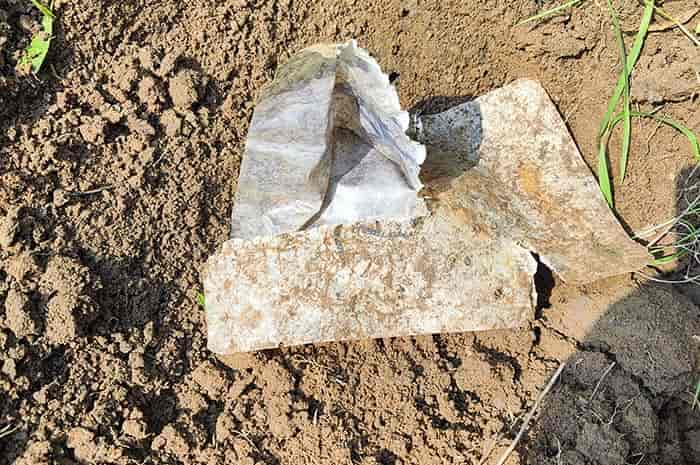


The biodegradation behaviour of the bio-based film materials is worthy of further study as more and more products are looking for packages which presents more eco-friendly and sustainability. In real life, a large majority of the compostable packages which are designed to compost in commercial facility or home and garden conditions may be just randomly discarded in the society and nature wild, and then buried in the soil conditions, or just floating in the wild oceans. So it is wise for people to pay more attention to the biodegradation performance of these compostable materials in soil conditions. Anyway, it is concerned with our life, with our future.
This land is located in Jimo District, Qingdao city, with exact location 36.49549891537326, 120.38460868456103 on Google Maps. Dated on November 26, 2021, we got pcs of the various compostable foil laminates buried in the nature soil. The air temperature of the winter seasons may decrease to 10~20 celsius degreee below zero line, and the land with depth less than 15cm would be frozen, and the activities of the micro-organisms may be lowered to a minimum level.


This foil laminate is achieved by dry lamination based poly-urethane adhesives, with coating weight around 1~2 grams per square meter. After being buried in soil under nature conditions for 18 months, Kraft paper fully vanished under the biodegradation process, PLA+PBAT film is actually damaged on the surface under the activities of micro-organisms, with a lowered thickness, however the large majority of the film still exists. It proves that PLA+PBAT film will actually need a longer period to fully break down to inorganic elements.
Protecting the environment requires far-reaching projects, that’s why Tongli is always looking for new ways to improve.
We are now moving steadily toward a more sustainable future.
